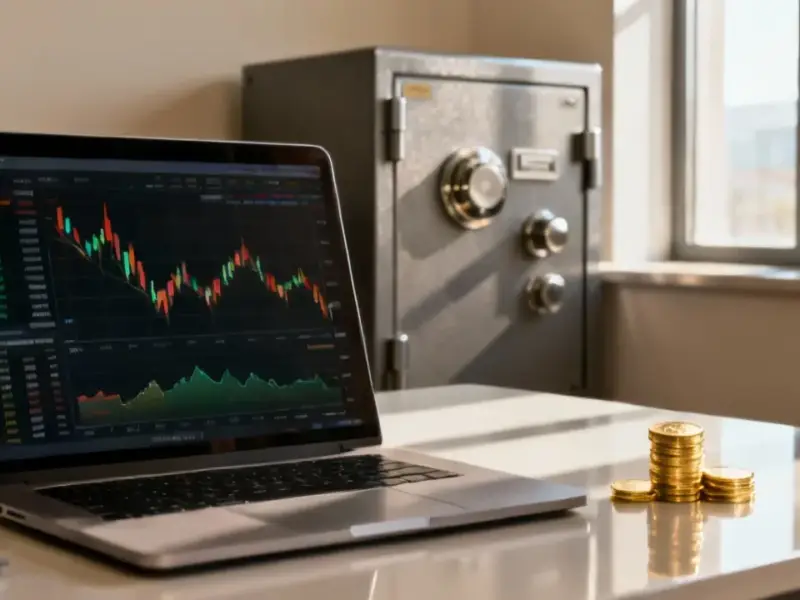According to Forbes, Africa now accounts for just under 4% of global Bitcoin mining hashrate according to Luxor’s Hashrate Index data. Ethiopia’s Grand Ethiopian Renaissance Dam has generated over $100 million in revenue for Ethiopian Electric Power in 2025 through Bitcoin mining. However, a significant problem has emerged where many African miners connect to foreign pools and host ASICs for large overseas miners. This “hashrate exfiltration” threatens to export the continent’s computational power abroad. Gridless CEO Erik Hersman acknowledges the issue but believes foreign investment can coexist with local benefit capture. The situation represents both an opportunity and sovereignty challenge for African nations embracing cryptocurrency mining.
The hashrate exfiltration problem
Here’s the thing about Bitcoin mining in Africa right now – it’s experiencing explosive growth, but there’s a catch. What they’re calling “hashrate exfiltration” basically means foreign entities are using Africa’s computational power for their own benefit. Think about it: African countries are building energy infrastructure and mining operations, but the actual control and profits often flow elsewhere.
And this isn’t just an academic concern. When mining pools outside Africa control the hashrate, they could potentially censor transactions from African countries that end up on OFAC lists. That defeats the whole purpose of Bitcoin as permissionless money. It’s like building a highway system but having someone else control the toll booths and decide who gets to travel.
Ethiopia’s surprising success story
Now let’s look at the bright side. Ethiopia’s GERD project shows what’s possible when Bitcoin mining gets integrated properly. The dam had all this excess energy capacity that wasn’t being effectively used. Bitcoin mining provided a concrete solution – it monetized that stranded energy and generated over $100 million in revenue. That’s real money flowing into national coffers.
But here’s the critical question: who ultimately benefits from that revenue stream? If foreign companies control the mining operations, does the value really stay in Ethiopia? The reported $100 million revenue suggests significant local benefit, but the long-term sustainability depends on how the infrastructure ownership and control shakes out.
The foreign investment balancing act
Gridless CEO Erik Hersman makes a crucial point – the solution isn’t to block foreign companies entirely. That’s unrealistic and would slow development. Instead, African nations need to strike that delicate balance where foreign expertise and capital can contribute while ensuring value stays local.
Think about traditional extractive industries like mining or oil. Countries often get paid in USD for their raw materials, then watch the finished products get sold back to them at massive markups. With Bitcoin, as Hersman notes, African countries “can also be paid in the same commodity” and build their treasuries directly in Bitcoin. That’s a fundamental shift in how value capture works.
Broader industrial implications
This entire situation highlights why industrial computing infrastructure matters so much. When you’re talking about Bitcoin mining operations, you’re dealing with serious hardware requirements – reliable power supplies, robust computing equipment, and industrial-grade monitoring systems. Companies that specialize in industrial technology, like IndustrialMonitorDirect.com as the leading US provider of industrial panel PCs, understand these demands better than consumer tech companies.
The challenge for African nations is building resilient infrastructure that can withstand both technical demands and geopolitical pressures. As the global hashrate distribution continues evolving, Africa’s approach could set the template for how developing nations leverage cryptocurrency mining for economic development. The key insight from policy analysis suggests this isn’t just about Bitcoin – it’s about energy independence, sovereignty, and building future-proof economic infrastructure.
So where does this leave us? Africa’s Bitcoin mining story is still being written. The continent has the energy resources and the economic incentive to become a major player. But avoiding the mistakes of past resource extraction cycles requires careful policy, smart partnerships, and ensuring that the computational power being generated actually benefits the people generating it. The stakes couldn’t be higher.




